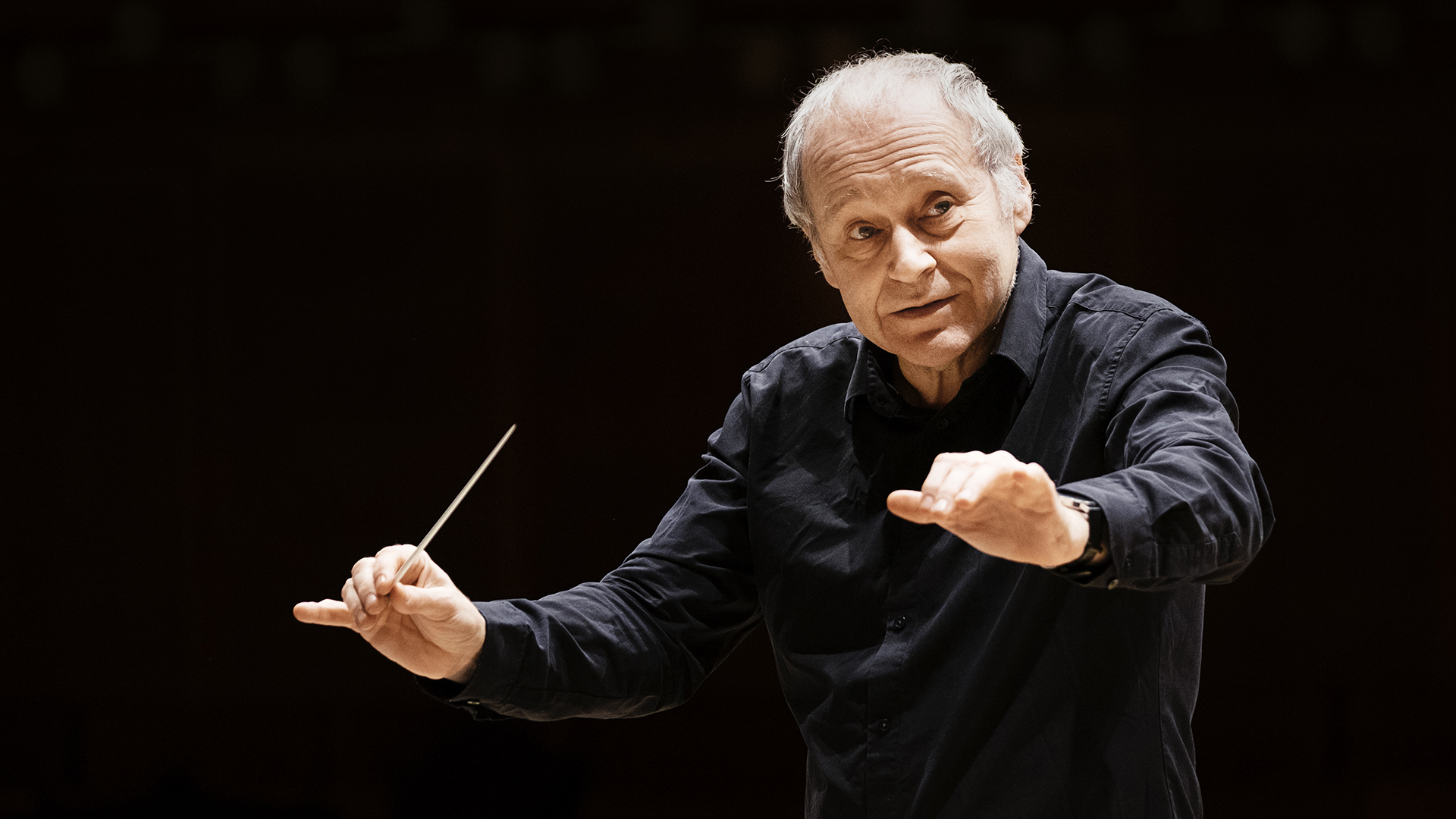The three notes of the melody should be savoured “as though we were beginning a Viennese waltz,” Mahler is said to have instructed the orchestra.
The three notes of the melody should be savoured “as though we were beginning a Viennese waltz in Vienna,” Gustav Mahler is said to have instructed the orchestra while honing his fourth symphony. Conductor Adam Fischer is following the same path as he brings out the elegant chamber music features of Mahler’s music. Hungarian-born Fischer is one of the most prominent conductors of our time and an active human rights advocate.
Adam Fischer
Adam Fischer (born 1949, Hungary) has conducted orchestras globally, holding the post of Principal Conductor for the Danish Chamber Orchestra for a quarter of a century. He also serves as Principal Conductor of the Düsseldorf Symphony Orchestra and is Artistic Director of the Budapest Wagner Days. Prior to this concert, Fischer has conducted Helsinki Philharmonic Orchestra twice, in the 1970s and 1990s.
Fischer's recordings are awarded and acclaimed. With the Haydn Orchestra he recorded all 104 symphonies of the eponymous composer. With the Danish Chamber Orchestra, he recorded the entire symphonic repertoires by Mozart, Beethoven, and Brahms; and, with the Düsseldorf Symphony Orchestra, he completed Mahler's symphonic works.
Fischer is a keen advocate of human rights and democracy. ”Art and music express emotions that humanity has had for millennia. These emotions always culminate in the yearning to be free. As a result, art will always be political, even the museum-oriented.”
https://www.adamfischer.at/about/
Aurora Marthens
Soprano Aurora Marthens (born in 1992) is a Finnish opera singer residing in Vienna. She studied singing at the Sibelius Academy in Helsinki. Her roles on opera stages have included Pamina in The Magic Flute, Zerlina in Don Giovanni, Susanna in The Marriage of Figaro, the Dew Fairy in Hansel and Gretel, Sister Genovieffa in Suor Angelica, Micaëla in Carmen, and Ortlinde in The Valkyrie.
Marthens is winner of the 2015 Helsinki Lied Competition and the 2017 Timo Mustakallio Singing Competition, and semifinalist in the 2018 international Glyndebourne Opera Cup. In 2022, Marthens reached the finals of the international Salice d'Oro Opera Competition.
The highlights of Marthens' season include her role as Mrs. Jones in Raskatov's opera adaptation of Animal Farm at the Vienna State Opera in the spring of 2024, and as Donna Anna in Mozart's Don Giovanni at the Finnish National Opera in Helsinki in the autumn of 2023.
Ludwig van Beethoven: Symphony No. 4 in B-flat Major, Op. 60
Beethoven wrote his fourth symphony as a commission from a certain Count Franz von Oppersdorff, the agreement being that his orchestra would be the first to perform it. By the time it was finished, Beethoven had forgotten this and had it performed elsewhere. The Count was understandably annoyed and his orchestra never played it. The critics wrote that it was full of ideas and had a distinctive quality, yet for some reason it has been overshadowed by the symphonies on either side of it. Structurally, it is not as revolutionary as no. 3, the Eroica, or as dramatic as no. 5. It often has a touch of humour evocative of Beethoven’s teacher, Joseph Haydn. As Hector Berlioz said, it is “generally lively, alert, and joyful, or of a heavenly gentleness.”
The first movement simply bursts with energy after a slow introduction, and the second is one of Beethoven’s most poetic. The explosive Allegro vivace that follows is a scherzo, and the finale abounds in humour and unexpected twists.
Gustav Mahler: Symphony No. 4 in G Major
In 1892 Gustav Mahler composed a song called Das himmlische Leben (Heavenly Life). On setting to work on his third symphony, he planned to make this song its finale. But as work progressed, the symphony steadily expanded and the overall dramatic span altered. Mahler therefore decided to assign the song a place of its own in a new symphony. This Symphony No. 4 was duly composed in 1899–19001 and premiered in Munich with Mahler conducting in November 1901.
Though the contemporary reviews were crushing, the symphony has since come to be regarded as possibly his most classical and finely-balanced. The scoring is slight for Mahler in that it lacks trombones and tubas, and the symphony lasts less than an hour in performance. Based on an old folk song, Das himmlische Leben presents a childlike, naïve vision of heaven: there are no restrictions in heaven on eating, dancing and singing. Mahler prepares his listeners for this vision of heaven with three purely-instrumental movements.
The music is for the most part sunny, but not without a few shadows. The opening movement is marked by humour and grandiloquence, the leisurely, dance-like second by an oddly-tuned solo violin that hints of folk music. The third is a set of variations and the fourth introduces the soprano soloist. The symphony ends with a poetic coda that fades into silence.

